A DJ explains how to use a record player and not damage the vinyl
There's an art to how to use a record player properly, and top DJ Izaak Gray explains how
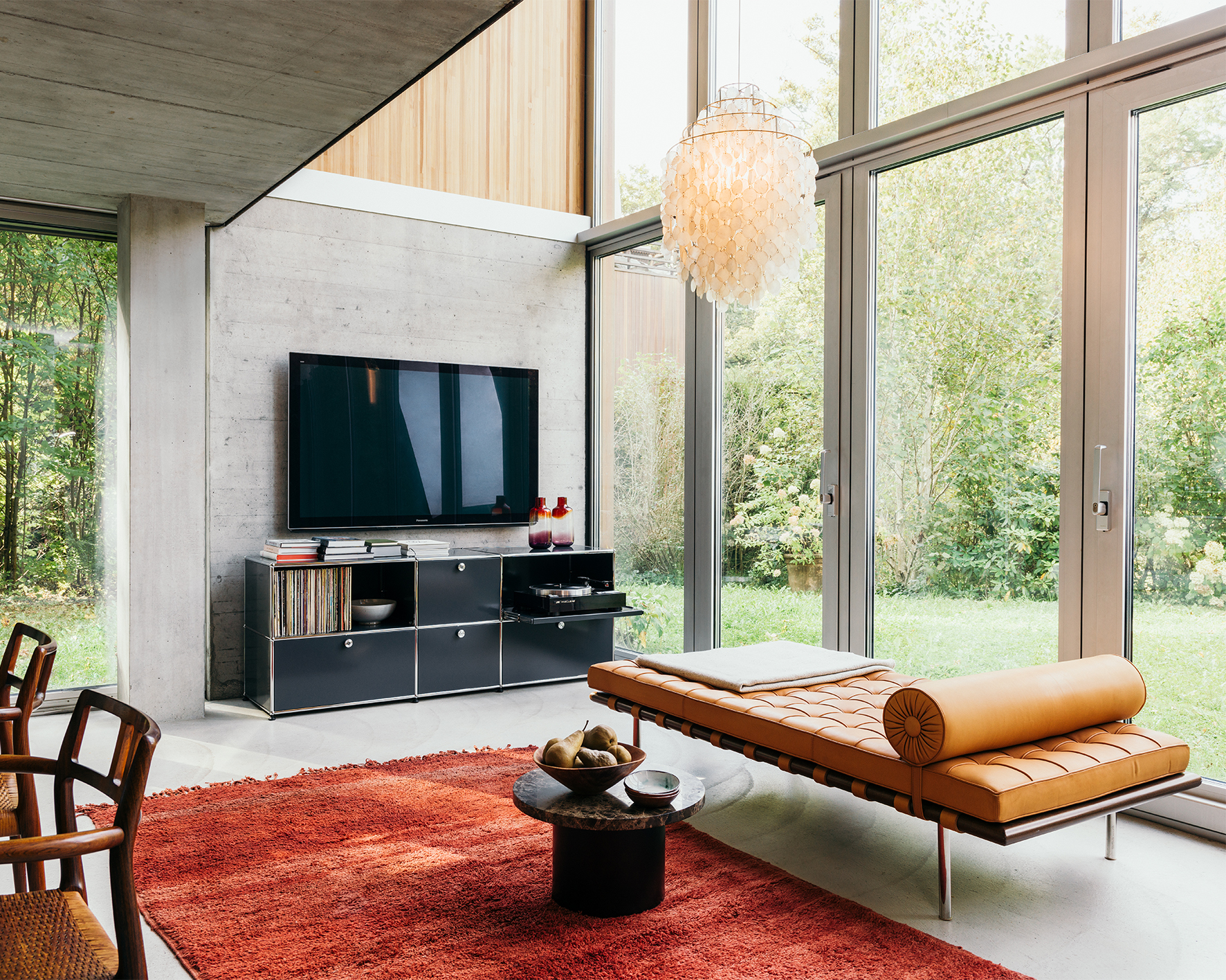
When it comes to how to use a record player, you need expert advice if you want to throw the most epic living room disco. As vinyl continues to impress us all as a stylish music medium – accounting for 18% of all album sales in fact - it’s easy to bring the party home this season with the latest high-tech record players.
Maybe you’re the sort of techie who already owns one of the best record players and wants to start their record collection. Or perhaps you're a vinyl veteran or always found in the kitchen at parties, and knowing how to care for your record player and vinyl will keep your coveted collection in top form. That’s why we asked top DJ Izaak Gray to take a break from spinning tunes to share his expertise with Livingetc readers on how to use a record player and not damage the vinyl.
A well-respected name in the London underground music scene and one half of artist Earthboogie, Izaak Gray frequently DJs on vinyl and knows the perils of taking vinyl on the road. An expert in the field, he also creates custom-built audio equipment, through his hi-fidelity PA company, East London Audio.
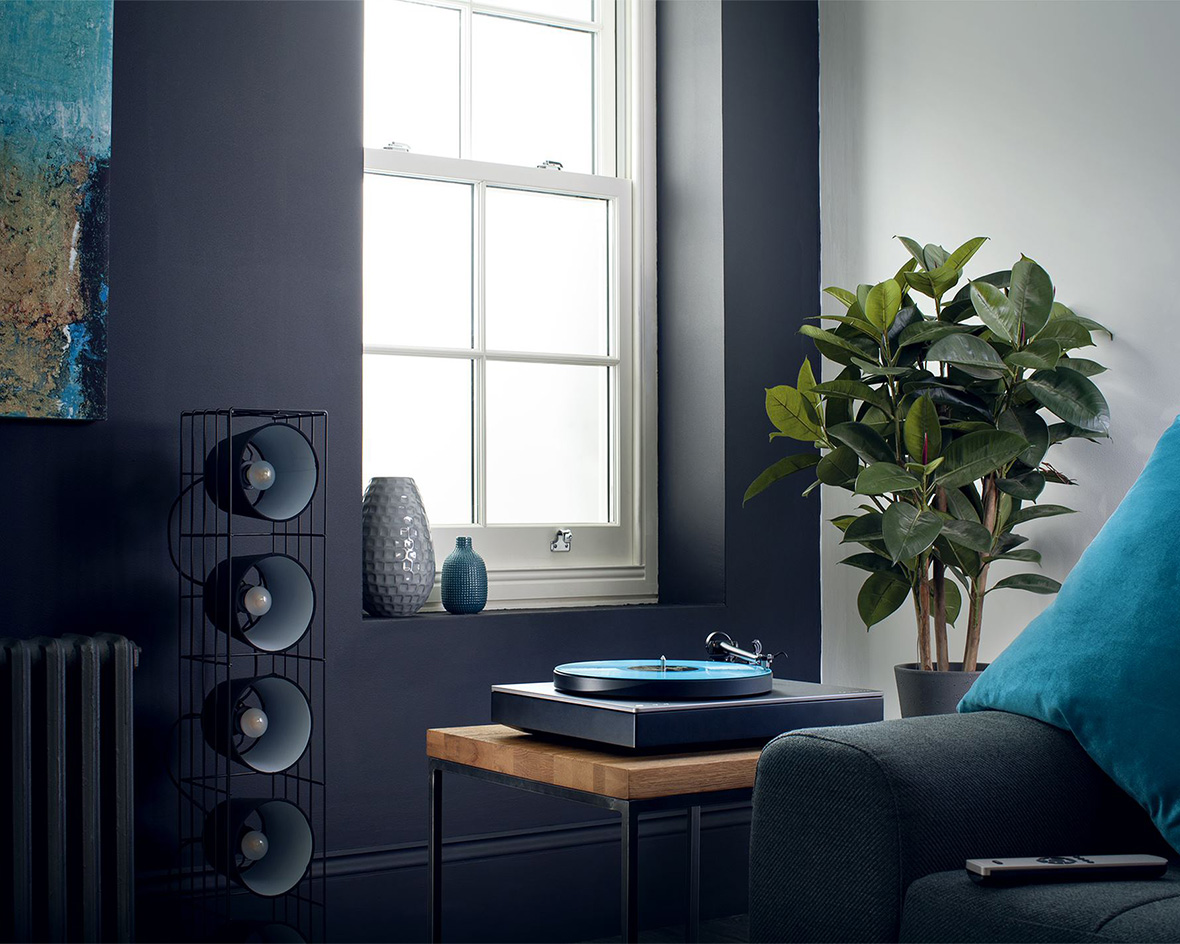
Record player by Cambridge Audio
How to use a record player and not damage the vinyl - DJ Izaak Gray's 10 Top Tips
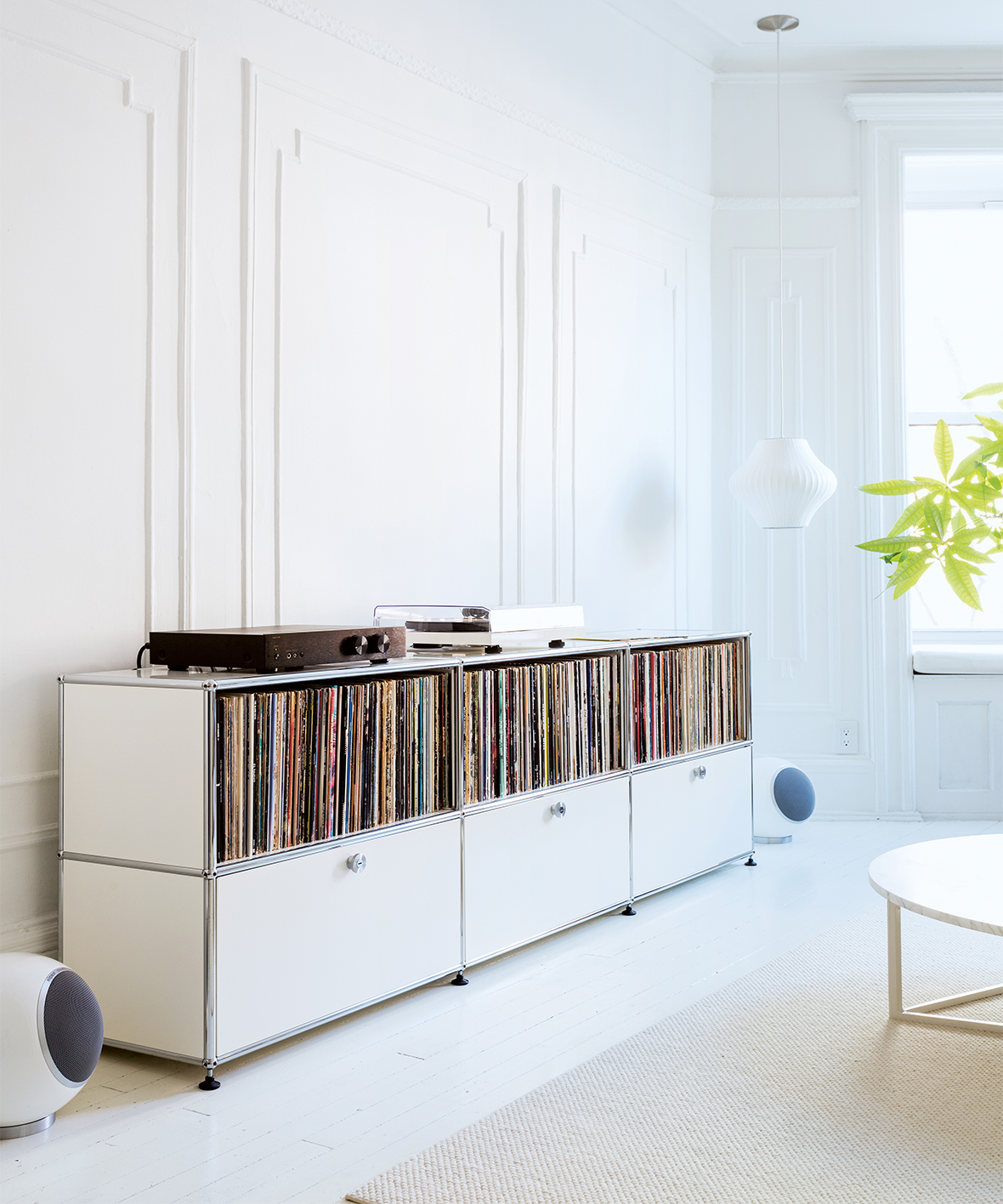
Storage unit by USM Haller
1. Choose the best record-player cleaning tools
It’s important to always have a vinyl and stylus cleaning kit to hand to keep your collection in the best condition. ‘Keep it in your record bag or in your record storage,’ says DJ Izaak Gray. ‘You’ll need a specialist anti-static brush for the vinyl and some kind of mild alcohol spray and cloth. A stylus cleaning brush is also useful and is like the world’s tiniest toothbrush. Most record shops will sell you a record cleaning kit.’
Try Big Fudge Record Care System priced at £23 at Amazon, for example.
2. Each time you play a record wipe off any excess dust first
It's important to wipe off any excess dust before playing a record. 'Always remove excess dust from the record using an anti-static vinyl cloth,' says Gray. 'Get rid of dust on the stylus before playback using that tiny toothbrush-like brush.
‘A bad sound is most likely caused by a worn or dusty stylus. This also means damage to your records. Stop as soon as you can and clean both stylus and record. If it persists, replace the stylus, or soon you’ll be replacing the record.’
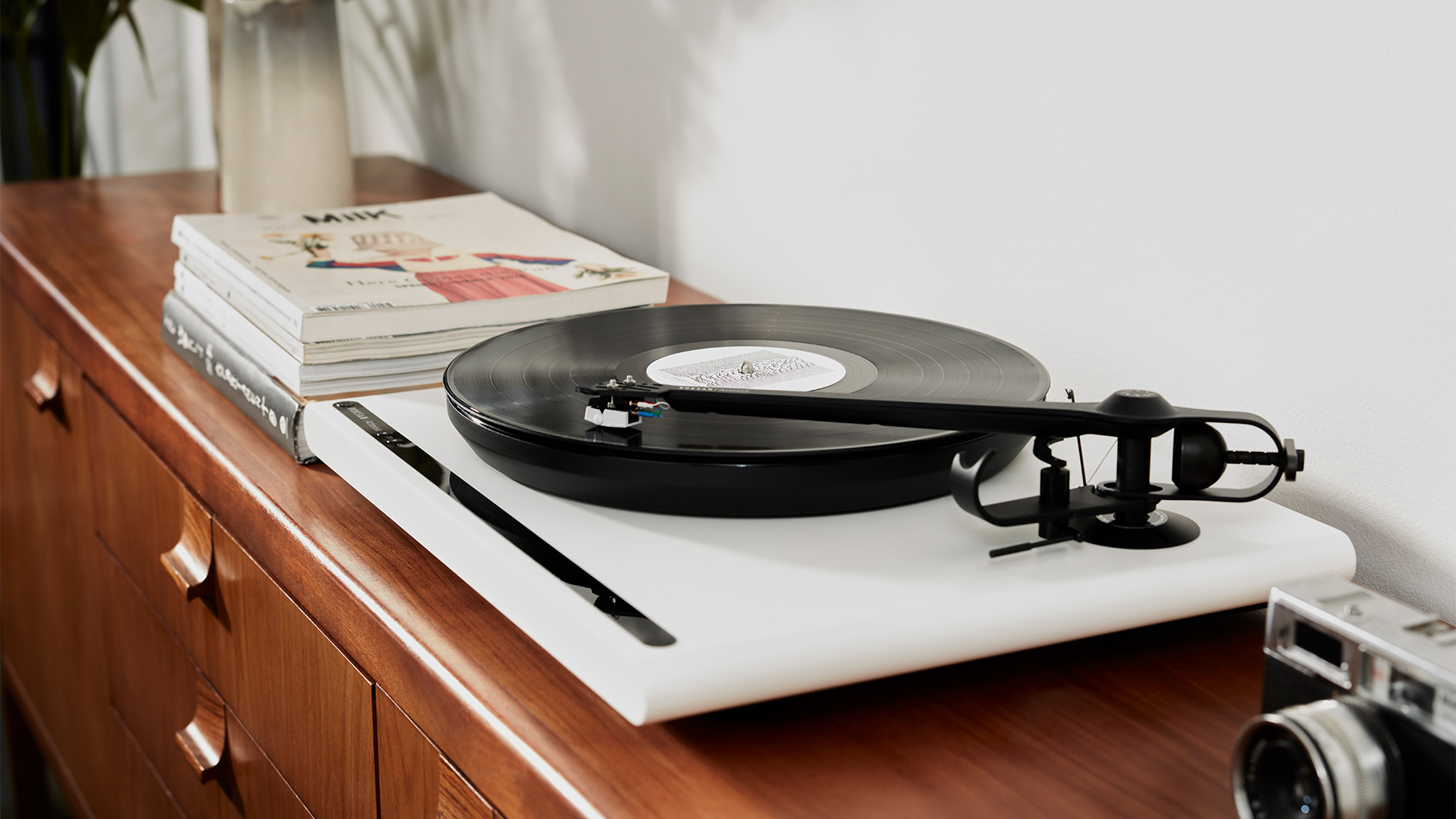
3. Check the record player tone-arm weight
There is a lot more to the technical maintenance side of record players as to, say, the best surround sound systems. To get the best from your record player, the optimum tone arm weight is key. ‘Make sure you’ve got the correct weight on the tone arm to the stylus and cartridge - not too much to avoid wear, not too little to avoid skipping,' says Gray. 'If unsure, check the manufacturer's specs. Adjustment procedures vary per deck.’

4. Take care placing the stylus on the vinyl
Gently does it when you go to play. ‘Take care with the stylus and place it carefully onto the run-in section on the vinyl, before you start the deck up,' says Gray. 'This is there to prevent the audio section from being damaged. Many decks also feature a gently operating level for this purpose, which is a sensible thing to use.'
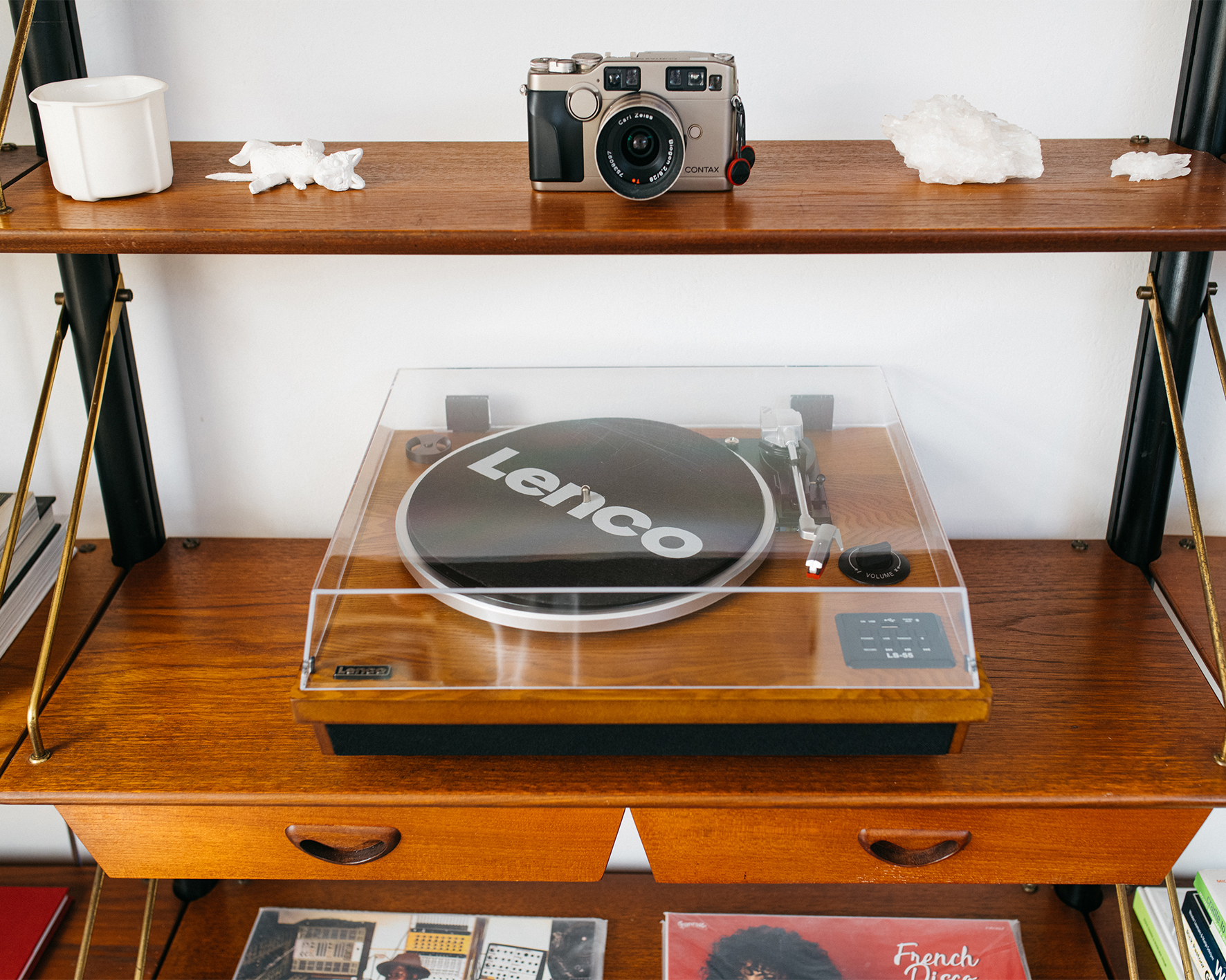
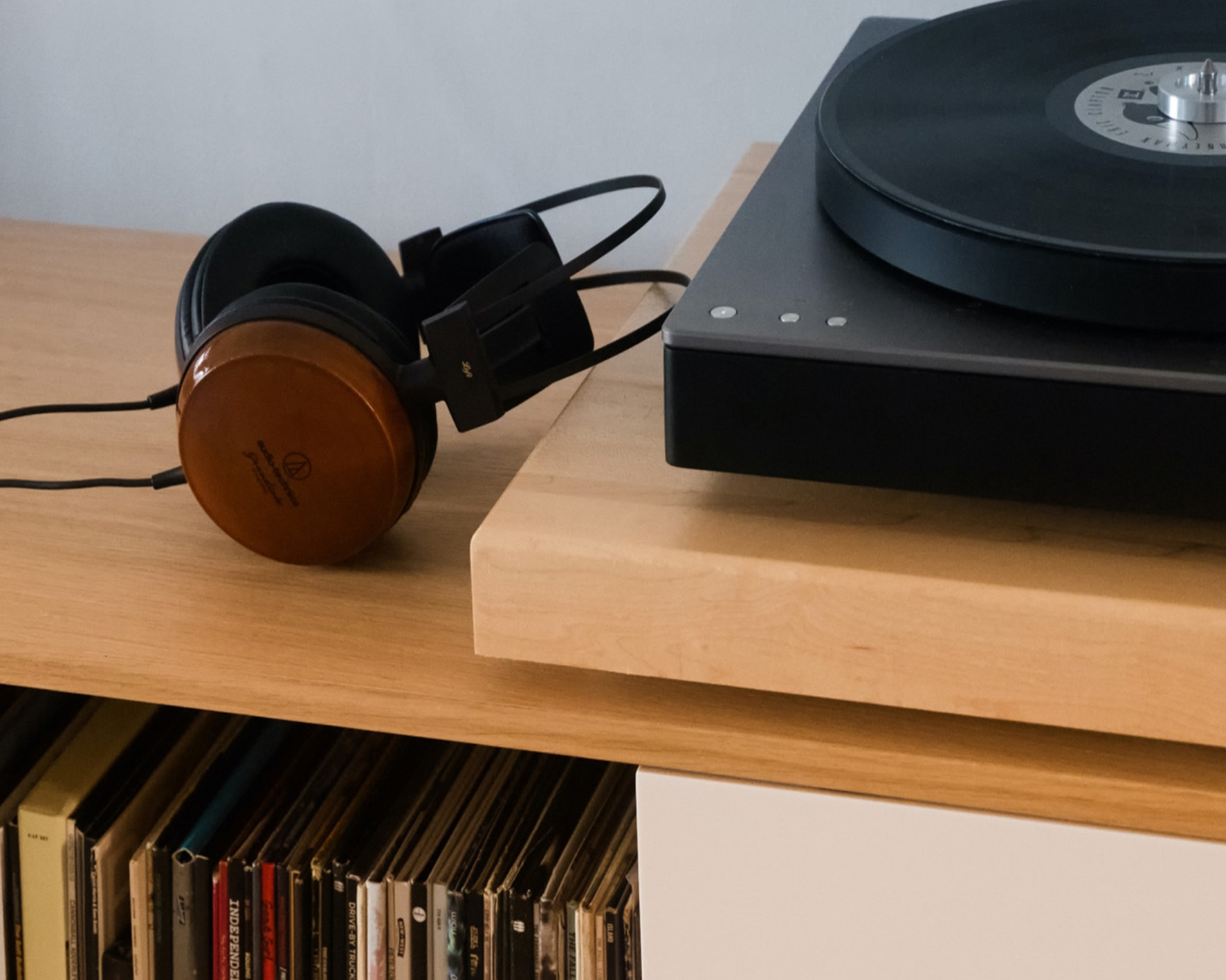
5. Good vibrations only
Unlike with the best smart speakers, to get the best sound from your record player you're going to need to keep it still. We realize of course that this may pose a problem if you've got 20+ people in your living room jumping around to YMCA.
‘Both from an audio fidelity and vinyl longevity perspective, vibration onto the deck is to be avoided,' says Gray. 'Never place your speakers on the same object as the vinyl deck, unless they include some form of isolation.
'You can add extra isolation to your deck. IsoAcoustics make some excellent devices that can decouple both your speakers and the deck from surfaces, for example. DJs in clubs know this too well.'
6. Make sure your deck is on some kind of solid surface
Be it a table or stylish media unit, you're going to need to keep the record player as stable as possible to play without interruption.
‘It’s all too easy for a tone arm to skip when a dodgy floorboard bends as someone walks over,' says Gray. 'This happens a lot to club DJs. It’s not unheard of in some venues with wooden floors for the DJ booth to be suspended from the ceiling, to counter the footfall of animated dancers.’
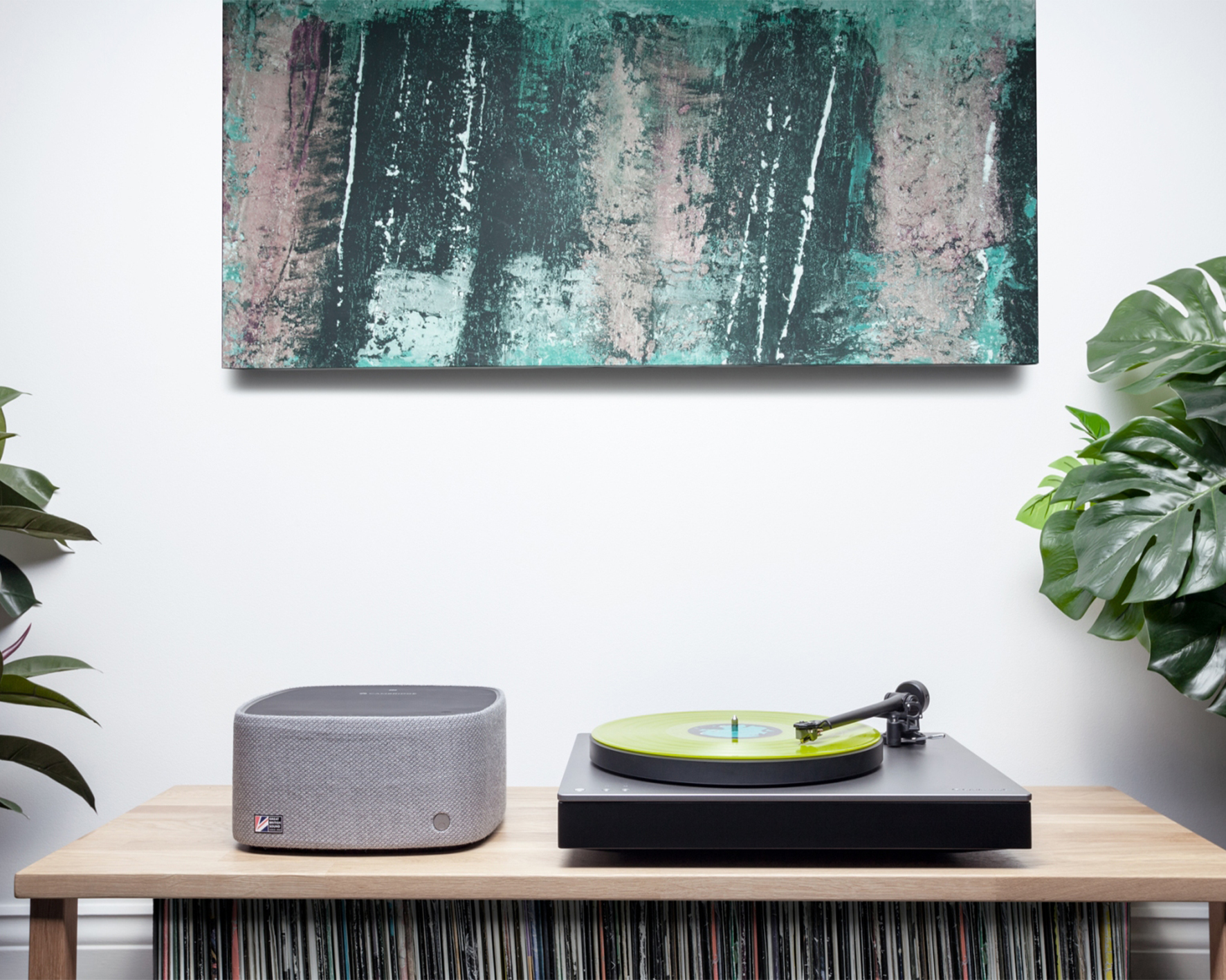
7. Make sure the deck is perfectly level, or as much as can be achieved.
A lopsided deck causes warbling and wear. 'My top tip is to use your smartphone compass, which includes a spirit level mode to quickly check your set up is straight,' says Gray. 'Many decks also have twistable feet to allow for adjustment.'
8. Good quality mains is a must
Decks clock their timing off the mains frequency so you need to have a stable connection. ‘I’ve gone into venues with fluorescent lighting rigs and actually watched my decks spin backwards!’ says Gray. ‘I once got called out to a venue to find out why a deck was playing back ultra slow. It turned out it was an imported unit from the USA, where the mains run a little faster.
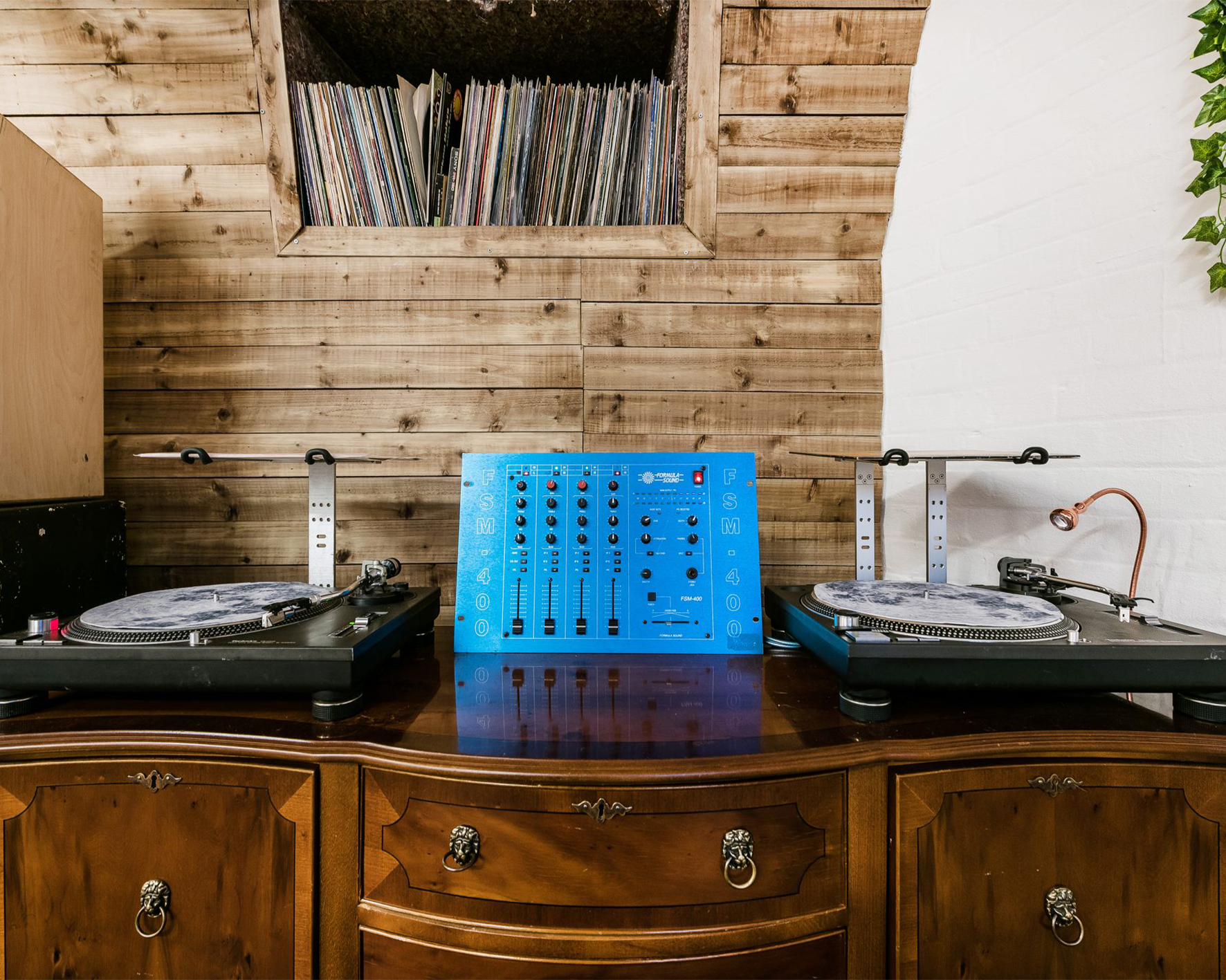
9. Store vinyl on its side
Step into any record store and you’ll notice how they store their vinyl in rows, which makes it easy to flick through. This also gives vinyl longevity and gives it a better chance at staying in the best condition.
‘Vinyl must be stored on its side and not on top of one another,' says Gray. 'This is to prevent warping. This happens over a long period of time, so don’t worry too much if you’re fishing out a bunch at once and quickly need to pop some down. But if you're storing your vinyl day to day, store it like you would a book on a bookshelf.’
10. Get yourself a quality record player
There are a lot of excellent record player designs now available – some with built-in speakers for streaming audio and breath-taking good looks. Some record players also have built-in tech to convert your vinyl to digital files.
‘Rega, Thorens, and Technics are all great examples of decent decks,’ says Gray. ‘Usually, the stylus is the limiting factor. Then the tone arm. Then the deck - in that order. Personally, I use a pair of Technics 1200s run through a formula sound mixer, as this allows me to DJ, whilst also giving me decent audio quality. The key to that is a decent elliptical stylus.
‘While I use technics 1210s, there are better players out there in terms of audio quality, build quality, reliability, etc, but it's a happy average of required characteristics for a DJ. And their sheer proliferation makes them incredibly serviceable. Finally, you can walk into nearly any music venue and there’s a pair of Technics there, and I find that familiarity incredibly useful.’
'A pro tip in terms of stylus/cartridge choice is to look for a unit that has its roll off somewhere near 17-18khz, which is a realistic top-end frequency response for vinyl. Some more DJ-focused or less high fidelity carts roll off around 12k, and you’ll really hear the difference.'
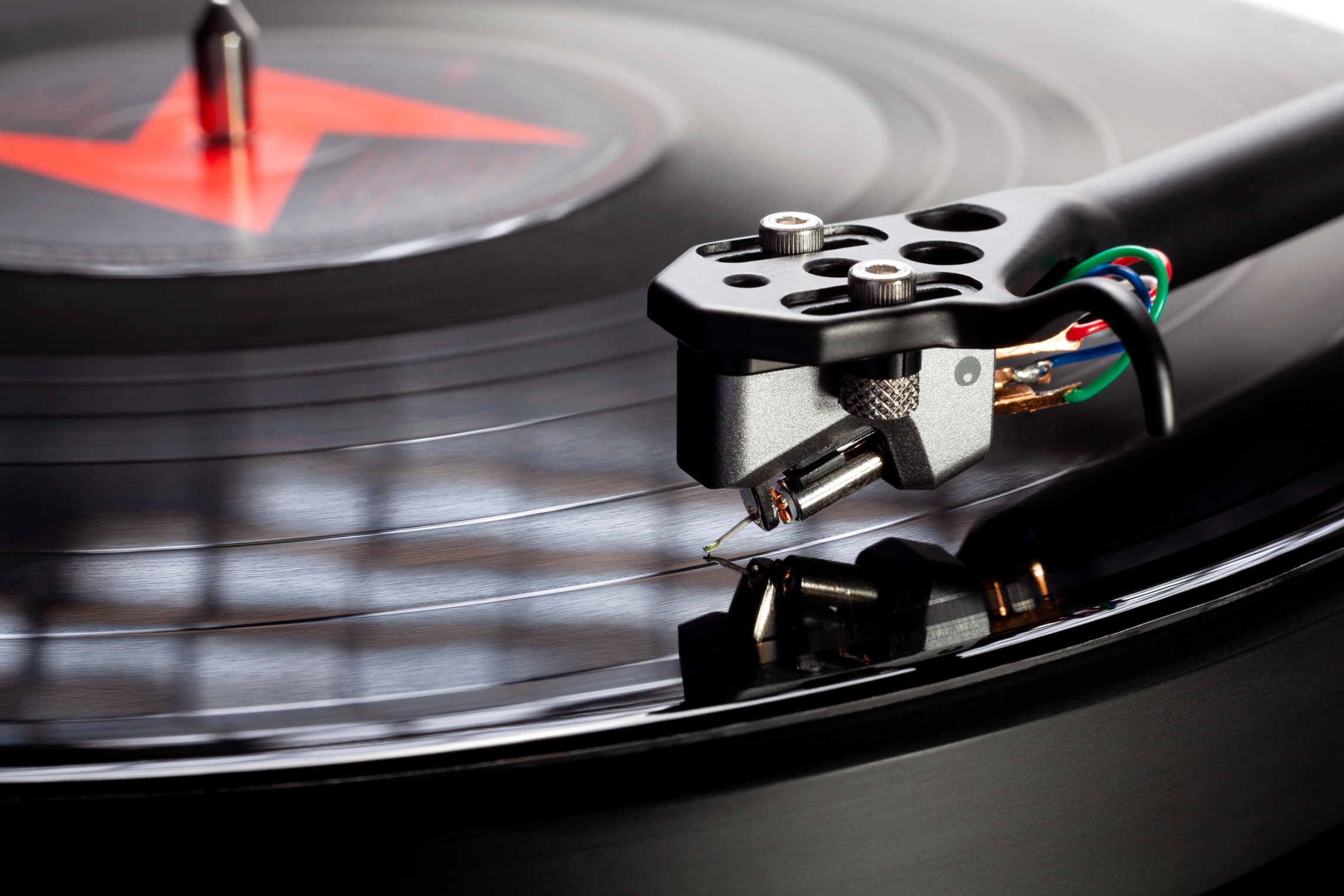
Which record player should I buy?
For vintage style and top-quality listening, nothing beats the look of some of the latest, stylish record players. Here are just a few designs Livingetc loves:
1. The Alva TT by Cambridge Audio is the world’s first Bluetooth aptX HD turntable. This means you can stream your vinyl wirelessly to compatible Bluetooth headphones or a wireless speaker in hi-res audio quality. This is better than CD quality and standard Bluetooth so you really do get exceptional sound. It costs £1,500.
2. The LS-55WA by Lenco is an attractive wooden turntable with built-in stereo speakers for excellent sound. It comes with a USB player and direct encoder to MP3, which means you can digitize your precious vinyl easily. It also features a wireless Bluetooth connection so you can link it up to any portable audio device you like. It costs £129.99.
3. The Technics SL-1200MK7 has a high-torque coreless direct drive motor, pitch control, and reverse play for a great sounding experience. It has a statically balanced S-shaped tonearm, which provides accurate pickup of the record signal, as well as a vibration-reducing chassis. It costs from £748.
4. The Unipivot tonearm on the Attessa Turntable by Roksan is light and easy to use thanks to its composite construction and glass jewel pivot. With a microprocessor-controlled amplifier driving the turntable motor, speed is controlled down to the microsecond so playback of your vinyl is true to the original. Switchable phono stage lets you plug and play with whatever kit you have with ease. Priced at £995.
5. The +Record Player from +Audio can be customized to suit your tastes and has built-in speakers and amplifiers. The first high-fidelity all-in-one record player has a USB so you can connect to Google Chromecast. This means you can stream the music from vinyl within your home network and play it on other devices. It also works with Amazon Echo and AirPlay. With a Bluetooth connection, it is compatible with Spotify and Apple Music. Prices start from £1,190.
Why choose vinyl?
We love the authentic, crackling sound of an old record. If you link to one of the latest audio systems, it is fair to say that the sound quality will improve dramatically too. Call us superficial, but it’s not all about the sound, however. We’re in it for the style too.
Think of all those iconic record covers to display around the home and the oh-so-cool vintage styling of the latest high-tech record players. The latest record players even come with USB ports to conveniently convert vinyl to digital MP3 files too.
Let’s not forget the beautiful record player stands and media units available to house all our kit, cleverly designed to add mid-century magic to our mood boards. Check out Maisons Du Monde’s Solia Acacia Record Cabinet, for example, pictured below, and you can't go wrong.
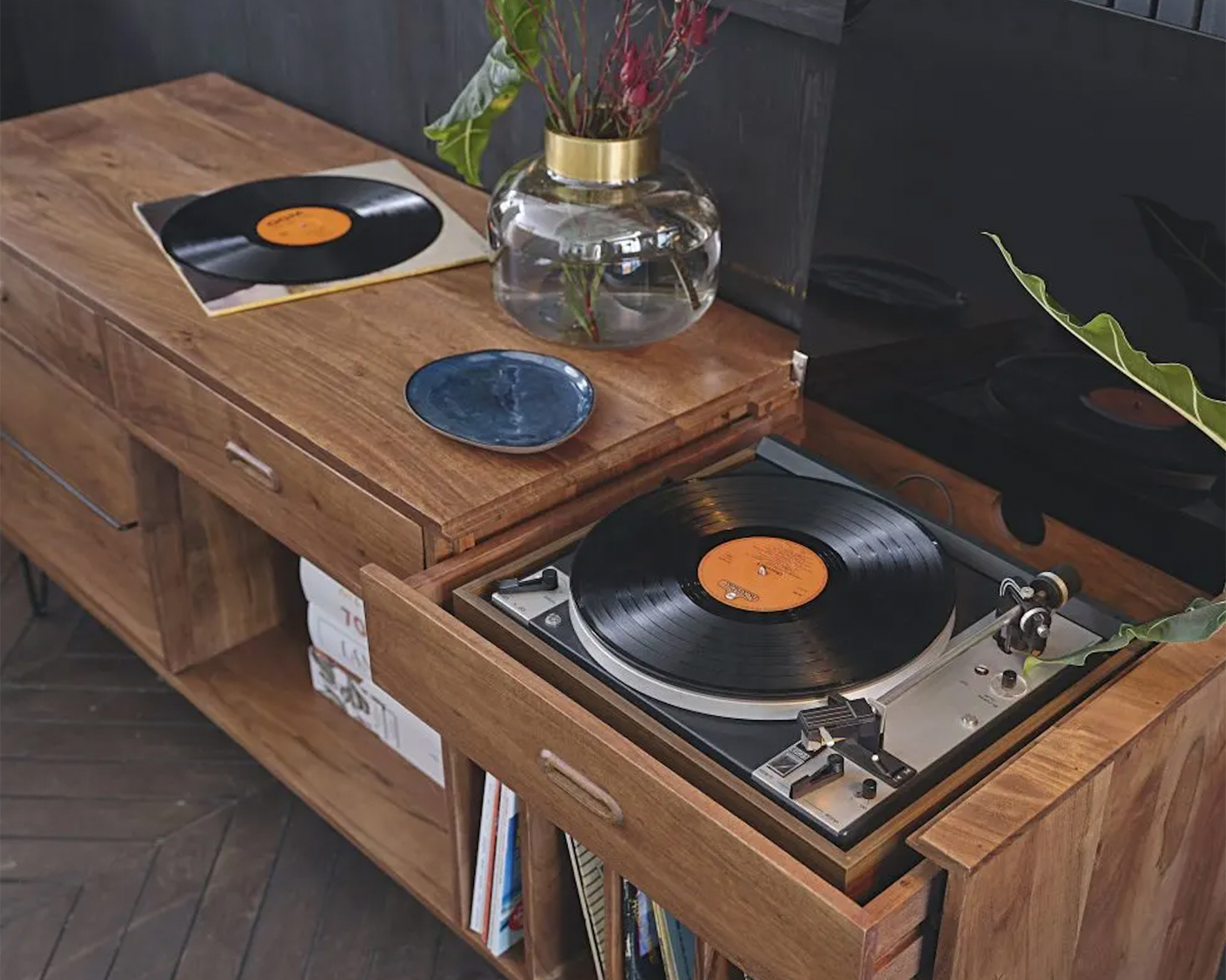
Be The First To Know
The Livingetc newsletters are your inside source for what’s shaping interiors now - and what’s next. Discover trend forecasts, smart style ideas, and curated shopping inspiration that brings design to life. Subscribe today and stay ahead of the curve.
One of the UK's most respected tech and smart homes writers, Emily Peck also covers everything from interiors style to decorating trends. She is a contributor to Wired UK, and has also had a column in House Beautiful. She has written for publications such as Grand Designs, Stylist, Shortlist, Woman&Home, BBC, Ideal Home and House & Garden. She was once the Features Editor of Ideal Home.
-
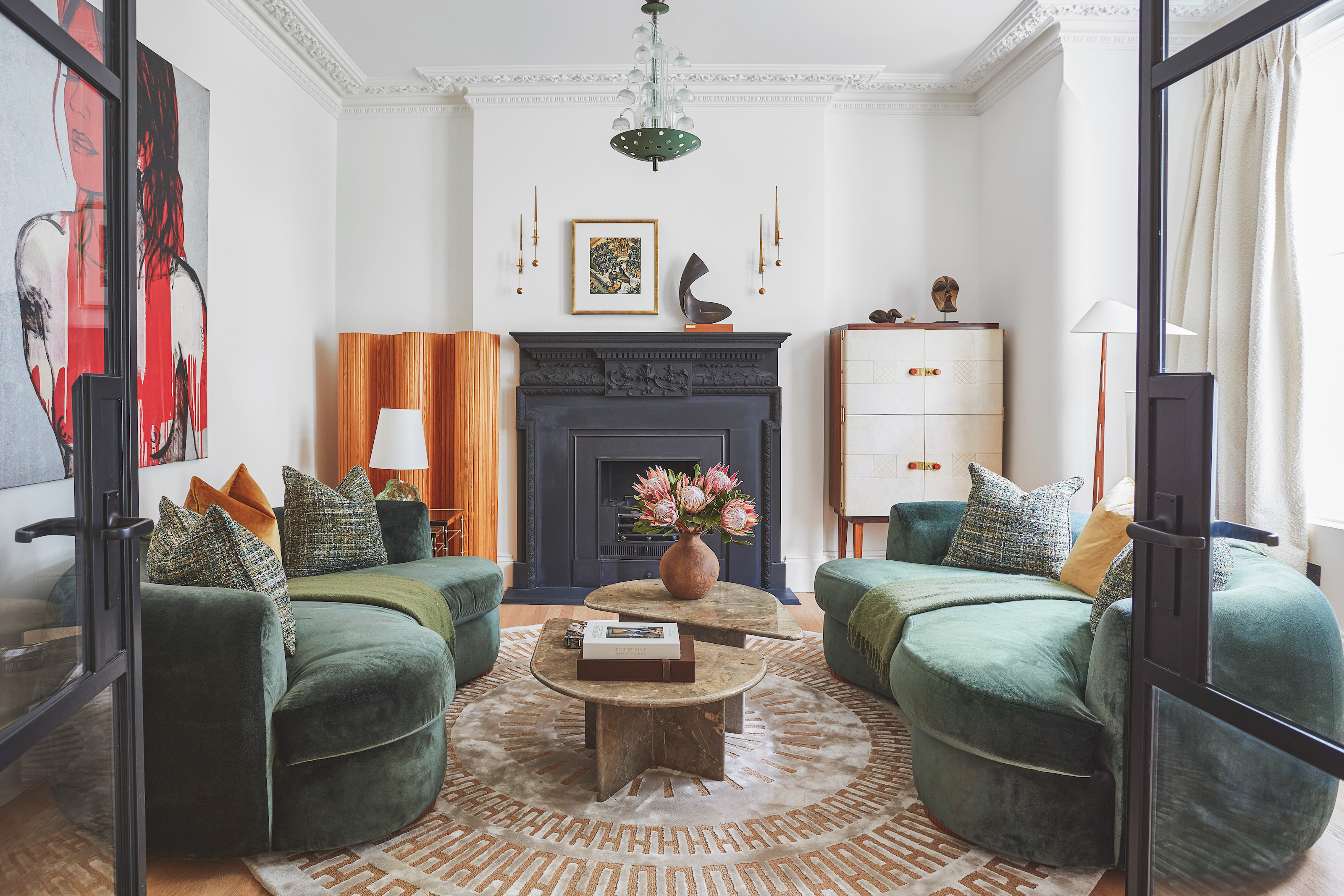 The 'New British' Style? This Victorian London Home Embraces Its Owners' Global Background
The 'New British' Style? This Victorian London Home Embraces Its Owners' Global BackgroundWarm timber details, confident color pops, and an uninterrupted connection to the garden are the hallmarks of this relaxed yet design-forward family home
By Emma J Page
-
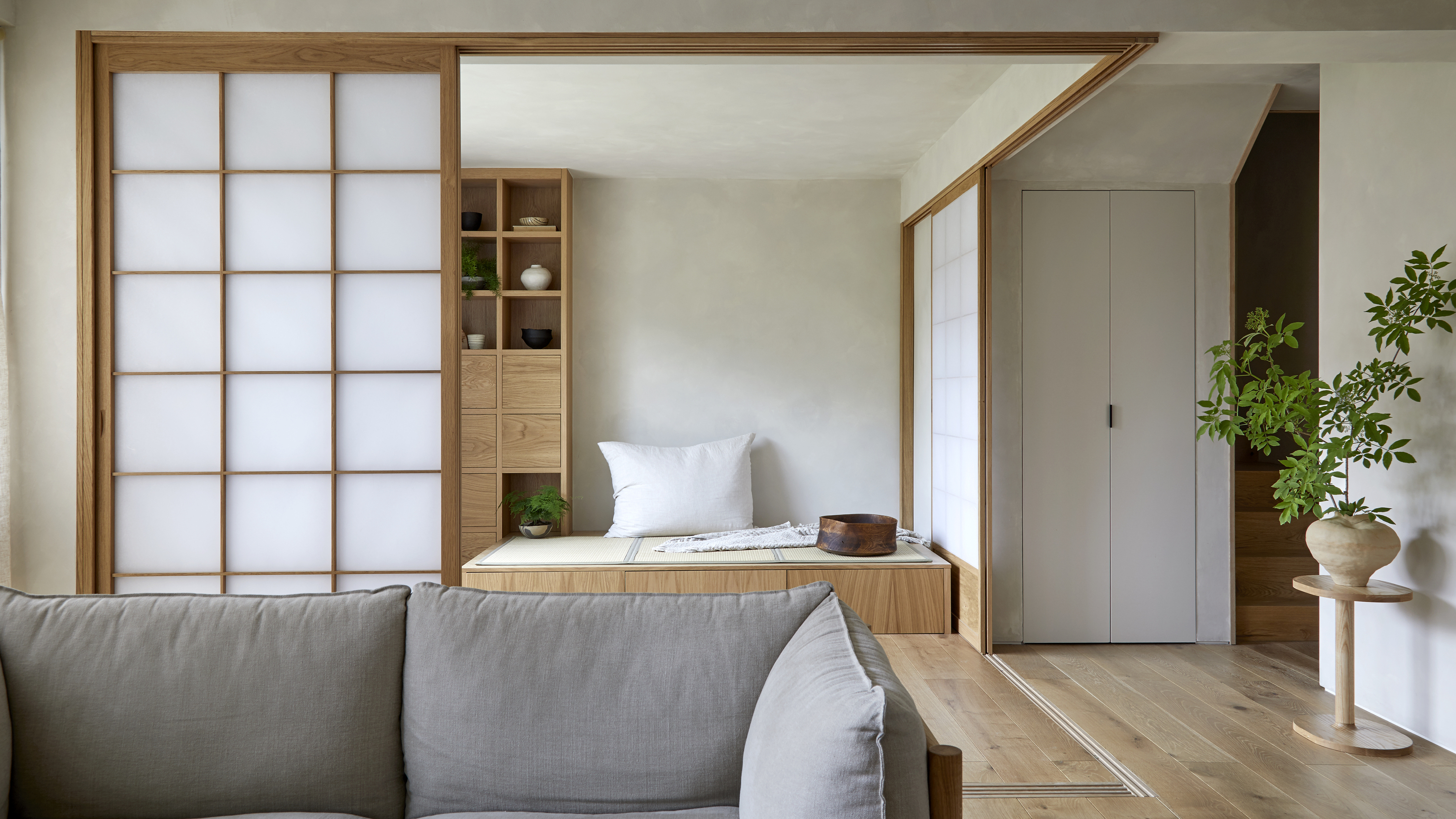 Muji Living Room Ideas — 5 Ways to Harness The Calming Qualities of This Japanese Design Style
Muji Living Room Ideas — 5 Ways to Harness The Calming Qualities of This Japanese Design StyleInspired by Japanese "zen" principles, Muji living rooms are all about cultivating a calming, tranquil space that nourishes the soul
By Lilith Hudson